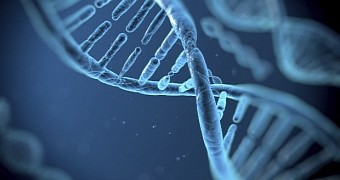There is this commonly held assumption that gaining weight boils down to eating more than you should and that, consequently, shaking it off can easily be achieved by dieting and exercising. You know, the eating less and burning more philosophy.
It just so happens that, as detailed in two papers published in the journal Nature just yesterday, there is more to fighting obesity than restricting food intake and burning more calories by, say, going for a run every other day or getting a gym membership and actually using it.
Thus, researchers with the University of Michigan in the US say that, according to their investigations into the matter at hand, genetics greatly influences a person's body weight. Specifically, it appears that genes explain why some people are more likely to plump up.
How genes influence body weight
Writing in the journal Nature, the University of Michigan specialists behind this research project and their colleagues say that, having looked at the body mass index (BMI) and the genetic profile of several hundred thousand individuals, they zoomed in on dozens of genome sites that correlate with obesity.
More precisely, the scientists say that they identified a total of 97 sites associated with obesity across the human genome, which they explain is the full set of an individual's genes.
Admittedly, several other investigations carried out in recent years managed to pin down such genome sites that correlate with a tendency to put on weight. Still, the University of Michigan researchers stress that their 97 sites triple the number of genome regions previously linked to obesity.
Interestingly enough, it appears that as many as 49 sites in the genome influence how fat is distributed in the body. Specifically, they can make guys and gals more likely to carry extra weight in their abdominal region and, in doing up, up the risk of cardiovascular and metabolic diseases.
The importance of this study
The fact that this many genome regions influence body weight proves that fighting obesity is not as simple as cutting back on junk food and sticking to a demanding exercise routine. On the contrary, it appears that genetics must also be taken into account.
“Our work clearly shows that predisposition to obesity and increased body mass index is not due to a single gene or genetic change. The large number of genes makes it less likely that one solution to beat obesity will work for everyone,” explains senior study author Elizabeth Speliotes.
The University of Michigan specialists plan to further study the link between obesity and genetics. The end goal is not only to figure out how to use genes to help people lose weight but also to find a way to treat related conditions like type 2 diabetes and high cholesterol.

 14 DAY TRIAL //
14 DAY TRIAL //